- Home
- Patricia Cornwell
Isle of Dogs
Isle of Dogs Read online
Contents
One
Two
Three
Four
Five
Six
Seven
Eight
Nine
Ten
Eleven
Twelve
Thirteen
Fourteen
Fifteen
Sixteen
Seventeen
Eighteen
Nineteen
Twenty
Twenty-one
Twenty-two
Twenty-three
Twenty-four
Twenty-five
Twenty-six
Twenty-seven
Twenty-eight
Twenty-nine
Thirty
Thirty-one
Thirty-two
This is a work of fiction. Names, characters, places, and incidents are either the product of the author’s imagination or are used fictitiously, and any resemblance to actual persons, living or dead, business establishments, events or locales is entirely coincidental.
ISLE OF DOGS
A Berkley Book / published by arrangement with the author
All rights reserved.
Copyright © 2001 by Patricia Cornwell
This book may not be reproduced in whole or part, by mimeograph or any other means, without permission. Making or distributing electronic copies of this book constitutes copyright infringement and could subject the infringer to criminal and civil liability.
For information address:
The Berkley Publishing Group, a division of Penguin Putnam Inc.,
375 Hudson Street, New York, New York 10014.
The Penguin Putnam Inc. World Wide Web site address is
http://www.penguinputnam.com
ISBN: 978-1-1012-0402-3
A BERKLEY BOOK®
Berkley Books first published by The Berkley Publishing Group, a member of Penguin Putnam Inc.,
375 Hudson Street, New York, New York 10014.
BERKLEY and the “B” design are trademarks belonging to Penguin Putnam Inc.
Electronic edition: June, 2003
Titles by Patricia Cornwell
POSTMORTEM
BODY OF EVIDENCE
ALL THAT REMAINS
CRUEL & UNUSUAL
THE BODY FARM
FROM POTTER’S FIELD
CAUSE OF DEATH
HORNET’S NEST
UNNATURAL EXPOSURE
POINT OF ORIGIN
SCARPETTA’S WINTER TABLE
SOUTHERN CROSS
LIFE’S LITTLE FABLE
BLACK NOTICE
THE LAST PRECINCT
ISLE OF DOGS
FOOD TO DIE FOR
RUTH, A PORTRAIT: THE STORY OF RUTH BELL GRAHAM
To Friend and Publisher,
PHYLLIS GRANN
One
Unique First fit her name like a glove, or at least this was how her mother always put it. Unique came first and was one of a kind. There was no one else like her—and this was a damn good thing, to quote her father, Dr. Ulysses First, who had never understood what genetic malignancy blighted his only child.
Unique was a petite eighteen-year-old with long, shimmering hair that was as black as ebony, and her skin was translucent like milk glass, her lips full and pink. She believed that her pale blue eyes could mesmerize whoever looked into them and that by casting as little as a glance at someone she could bend that person’s mind to fit her Purpose. Unique could haunt someone for weeks, building up unbearable anticipation until the final act, which was a necessary and frenzied release, usually followed by a blackout.
“Hey, wake up, my car’s broke down.” She knocked on the window of the Peterbilt eighteen-wheeler that was parked all by itself at the Farmers’ Market on the fringes of downtown Richmond. “I’m wondering if you got a phone?”
It was 4:00 A.M., pitch dark, and the parking lot was poorly lit. Although Moses Custer knew very well that it wasn’t safe to be out here alone at this hour, he had ignored his usual good judgment after fighting with his wife and storming off in his truck, where he intended to spend the night, alone and missing in action, out by the vegetable stands. That would sure show her, he always thought when their marital routine turned ugly. He opened the door of his cab as the knocking on the glass continued.
“Lordy, what’s a sweet little thing like you doing out here at this hour?” Moses asked, confused and drunk, as he stared at the creamy, delicate face smiling at him like an angel.
“You’re about to have a unique experience.” Unique said the same thing she always did right before she moved in for her Purpose.
“What’chu mean?” Moses puzzled. “What unique ’sperience?”
The answer came in a legion of demons that kicked and pounded Moses and ripped at his hair and clothes. Explosions and obscenities erupted from hell, and fire seared his muscles and bones as savage forces beat and tore him to shreds and left him dead and drove off in his truck. Moses hovered above his dead self for a while, watching his mauled, lifeless body on the tarmac. Blood streamed out from under his head as rain smacked down, and one of his boots was off and his left arm was at an angle that wasn’t natural. As Moses gazed down on himself, a part of him was worn out and ready for Eternity while another part of him regretted his life and grieved.
“My head’s ruined,” he moaned and began to sob as everything went black. “Ohhh, my head’s ruined. Lord, I ain’t ready! It ain’t my time yet!”
Complete darkness dissolved to a floating airspace from which Moses watched pulsing emergency lights and urgent firemen, paramedics, and police in yellow rain slickers with reflective tape that glared like white fire. Flares hissed on wet pavement as a heavy cold rain fell, and voices were excited and loud and made no sense. It seemed people were yelling at him and it frightened Moses and made him feel small and ashamed. He tried to open his eyes, but it was as if they had been sewn shut.
“What happened to the angel?” he kept muttering. “She said her car broke down.”
UNIQUE’S car was fine and she drove around downtown for a couple of hours, listening to radio newsbreaks about the mugging and hijacking at the Farmers’ Market and the speculation that it had been committed by the same gang of highway pirates that had been terrorizing Virginia for months. But this time Unique enjoyed the afterglow a little less than usual. She could have sworn that old black truck driver was dead, and she was irritated that her accomplices had been in such a hurry to run off that they had robbed her of a complete release. Had it been up to her, she would have finished what she started and made sure the truck driver never talked again.
But she wasn’t worried about cops paying her any mind as she cruised around in her white Miata at this strange hour. Part of being Unique was not looking like what she was. Part of being Unique was not looking at all like what she did. She was so certain of her invincibility that she pulled off at Fred’s Mini Mart, where a police car was parked.
Unique could spot an unmarked car from a block away, and she slipped inside the store as she eyed the handsome young blond man who was paying for a quart of milk at the counter. He was wearing jeans and a flannel shirt, and she searched for any sign of a gun and detected a bulge at the small of his back.
“Thanks, Fred,” the blond plainclothes cop said to the man at the cash register.
“You bet, Andy. I’ve missed seeing you. This whole last year, it’s like you dropped off the damn planet.”
“Well, I’m back,” Andy said, pocketing his change. “You be careful. There’s a really bad gang out there. We just had another truck driver hit.”
“Yeah, no shit! Heard it on the radio. How bad did they mess him up? I guess you worked the scene.”
“Nope.
Off duty. I heard about it the same way you did,” Andy replied with a trace of disappointment.
“Well, me—I agree with what the newspaper’s saying about it being a hate crime thing,” Fred said. “From what I hear, the leader’s a white dude and all the victims so far are black, except for that female trucker a couple months back. But then, I think she was a minority, too, if you know what I’m saying. Not that I’m a big fan of dykes, but that was pretty horrible. Seems like I read somewhere she had a stick shoved up her and was cut. . . Oh!” Fred exclaimed, startled, as Unique appeared out of nowhere and set a six-pack of Michelob on the counter. “You slipped in so quiet, sugar, I didn’t know there was nobody else in the store!”
Unique smiled sweetly. “I’d like a pack of Marlboros, please,” she said in a small, soft voice.
She was very pretty and dressed neatly all in black, but her boots were scuffed and they sure were dirty, and she looked as if she had been caught in the rain. Andy noticed a white Miata in the parking lot when he got back in his unmarked Caprice, and he had scarcely driven off when the delicately lovely girl with the strange eyes climbed into the Miata. She followed him through downtown, all the way to the Fan District, and just as he slowed down to see if he could make out her license plate, she turned off on Strawberry Street. Andy had an odd feeling that he couldn’t place, and as he returned to his small row house and fixed a bowl of cereal, he had the eerie sensation that he was being watched.
Unique knew how to stalk anybody, including a cop, and she stood across the street in the deep shadows of trees and watched Andy’s shadow move from room to room eating something out of a bowl. Several times he parted the curtains and looked out at the vacant, still street. She cast her gaze in his direction and imagined the power she was having over his mind. He was feeling uneasy and sensed Something, she believed, because Unique had been around for a very long time and could trace her most recent possession back to Dachau, Germany, where she had been taken over by a male Nazi. Long before that—she had divined from tarot cards—she had been The Adversary and had eyes all over her body.
Andy parted the curtains again and by now was unsettled enough to carry his pistol everywhere he went inside his house. Maybe he was out of sorts because it really bothered him when a bad case went down, like Moses Custer, and Andy wasn’t part of the investigation. It depressed and frustrated him to hear on the news that the trucker was kicked, stomped, and beaten, and left for dead, and Andy hadn’t been anywhere around to see things for himself and make a difference. Or maybe he was in a dark mood simply because he had been up all night and was excited and scared about what lay ahead.
ANDY Brazil had been waiting for this day for an entire year. After endless hours of bone-aching work, he was at last launching his first installment of a special series of essays that in several hours would be posted on an Internet website he called Trooper Truth. The project was both ambitious and unlikely, but he had been quite determined when he first approached his boss about it inside her formidable office at Virginia State Police headquarters.
“Just hear me out before you say no,” Andy had said, shutting her door. “And you’ve got to swear you’ll never tell anybody what I’m about to propose.”
Superintendent Judy Hammer had gotten up from her desk and been silent for a moment, looking like a publicity portrait of power as she stood in front of the Virginia and United States flags, her hands in her pockets. She was fifty-five years old, a striking woman with keen eyes that could penetrate body armor or empower a crowd, and her smart business suits could not hide a figure that Andy had to resist openly staring at.
“All right.” Hammer had begun her characteristic pace around her office as she considered what Andy intended to do. “My first reaction is—absolutely not. I think it would be a big mistake to interrupt your law-enforcement career so soon. And I’ll remind you, Andy, you were a cop in Charlotte for only a year, then a cop here in Richmond for only a year, and you’ve been a state trooper for barely six months.”
“And during that time I’ve written hundreds of crime columns for area papers,” he’d reminded her. “That’s my most important accomplishment, isn’t it? Hasn’t your major agenda been to use me to inform the public about what’s going on and what the police are doing about it or, in some instances, not doing about it? The whole point has always been to enlighten people, and now I want to do that in a bigger way and to a bigger audience.”
Andy’s was an unusual career and always had been. He’d gone into journalism right after college and had gotten involved in law enforcement as a volunteer, riding with police and writing eyewitness pieces for the city newspaper. This had been in Charlotte, North Carolina, where Hammer had been chief at the time, and she had eventually hired him as a sworn officer who enforced the law while continuing to write crime columns and editorials. Hammer had allowed him this unprecedented opportunity because she was in an unusual position, too, having been given a grant by the National Institute of Justice that allowed her to take over troubled police departments and straighten them out. She had always seen beyond boundaries and had become Andy’s mentor, faithfully bringing him with her as she moved on in her career, but as he sat in her office and watched her pace, he sensed that his plan struck her as ungrateful.
“I appreciate everything you’ve done for me,” he had said to her. “I’m not turning my back on you and disappearing.”
“This isn’t about my worrying that you’re going to disappear,” she had replied in a way that made him feel that if he vanished for months she wouldn’t miss him in the least.
“I’ll make it worth your while, Superintendent Hammer,” he had promised her. “It’s time I have more to say than just who robbed who or how many speeders were caught or what’s the latest crime wave. I want to put criminal behavior into the context of human nature and history, and I believe it’s important, because people are only getting worse. Can you help me get a grant or something so I can pay my bills while I do the research and write and take flying lessons—?”
“Who said anything about flying lessons?” she had interrupted him.
“The aviation unit’s got instructors, and I think I could be much more useful to you if I had my helicopter pilot’s license,” he’d explained.
Hammer let him have his way, perhaps because she realized he was going to leave her anyway. He could launch a website as a special, classified project while he continued to work for her, she said, but the condition was that he had to remain anonymous, because Governor Bedford Crimm IV, who was an aristocratic, autocratic, impossible old man, did not allow Hammer to disseminate information to the public without his approval. Clearly, whatever Andy wrote could not be directly connected to the Virginia State Police, but at the same time had to reflect favorably on it and encourage the public to support it. She had added that Andy had to be available for emergencies, and if he wanted to learn to fly, he could work that out on his own schedule.
He’d pushed his luck by asking, “Will I have a travel budget?”
“For what?” Hammer had asked. “Where are you going?”
“I’ll need funding for archaeological and historical research.”
“I thought you were writing about human nature and crime.” Hammer had begun to resist him again. “Now what? You’re flying helicopters and globetrotting?”
“If I discuss what’s wrong with America today, I need to show what was wrong with it when it got started,” he’d explained. “And you need more pilots. You’ve already had two quit on you in the past three months.”
ANDY sat at the table in the dining room, which had become his hopelessly cluttered office, and typed his password into his computer and opened a file. After twelve months of arduous research and writing, and flying lessons and ground school, he was desperate to get out and chase lawbreakers and investigate violent crimes from both the ground and the air. He was eager for people to read what he had to say, and often he fantasized about riding or flying with other trooper
s or working a scene and overhearing people talk about what they had read on the Trooper Truth website that day. No one would have a clue that Trooper Truth was in their midst gathering even more information from their comments. Only Hammer knew the truth about Trooper Truth, and she and Andy had been meticulously careful to protect his identity.
When, for example, he had done archaeological research and traveled as far away as England and Argentina gathering facts, he never let on that he was a journalist-cop doing research. He was simply a twenty-eight-year-old man who was doing graduate work in history, criminology, and anthropology. It was the first undercover job Andy had ever had, and it still amazed him that no one bothered to check on whether he was actually enrolled in a university graduate program or was even who he said he was.
Although Andy was not the sort to stare into the mirror and see himself the way others did, he was aware that he had many gifts in his favor. He was tall with a sculpted build, and his features were so perfectly proportioned and refined that as a boy he had been teased for being pretty. His hair was light blond, and his blue eyes changed with his thoughts and moods very much like the sky reflecting shifting clouds and light. He could look stormy or peaceful or extremely intense. His intellect was quick and facile, and his words could shine like silver and be just as hard when necessary.
It had never been difficult for Andy to get what he wanted because people, as a rule, were drawn to him or at least mindful that he was a presence they could not dismiss. He also worked hard to compensate for the emptiness of his early years. His father had been murdered when Andy was a child, leaving no one but an alcoholic mother who never acknowledged that her son was special or decent, but rather exiled him to a lonely realm of relentless preoccupations and fantasies.
Had he not grown up that way, he could not have endured the isolation that was necessary for him to explore and write what the world was about to read. But now that the moment had come, he felt as disturbed and gloomy as the morning beyond his windows. Heavy clouds hung over the city. As a vein of lightning pierced the dark dawn, it occurred to him that it would be a terrible omen if the power went out and his computer crashed. He was startled out of his preoccupations when the telephone rang.

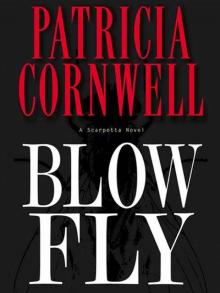 Blow Fly
Blow Fly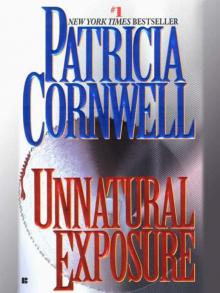 Unnatural Exposure
Unnatural Exposure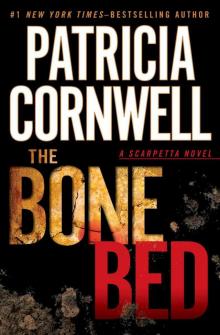 The Bone Bed
The Bone Bed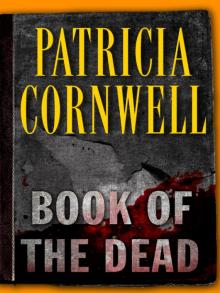 Book of the Dead
Book of the Dead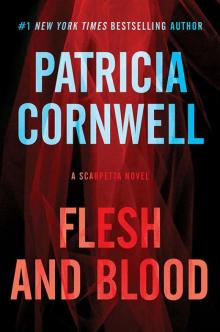 Flesh and Blood: A Scarpetta Novel (Scarpetta Novels Book 22)
Flesh and Blood: A Scarpetta Novel (Scarpetta Novels Book 22)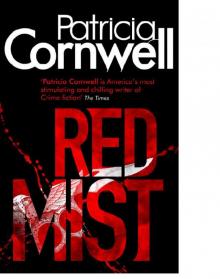 Red Mist
Red Mist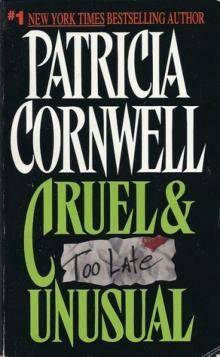 Cruel & Unusual
Cruel & Unusual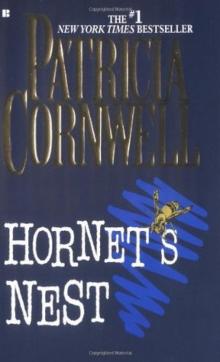 Hornet's Nest
Hornet's Nest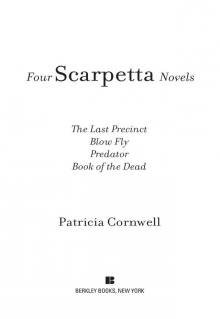 Four Scarpetta Novels
Four Scarpetta Novels Scarpetta's Winter Table
Scarpetta's Winter Table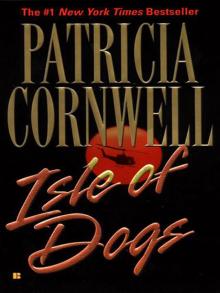 Isle of Dogs
Isle of Dogs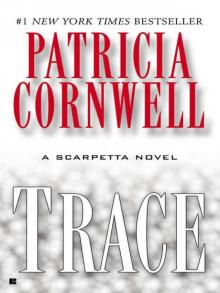 Trace
Trace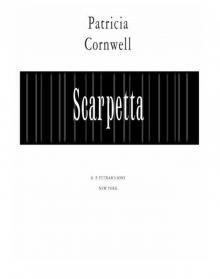 Postmortem
Postmortem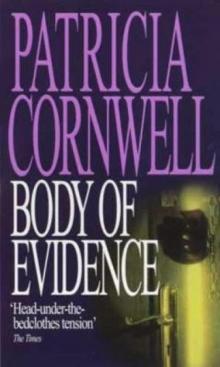 Body of Evidence ks-2
Body of Evidence ks-2 Southern Cross
Southern Cross All That Remains
All That Remains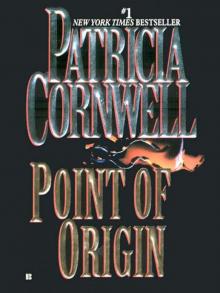 Point of Origin
Point of Origin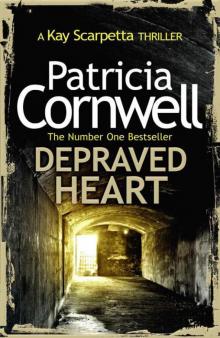 Depraved Heart
Depraved Heart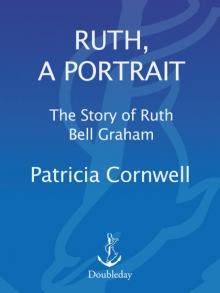 Ruth, a Portrait: The Story of Ruth Bell Graham
Ruth, a Portrait: The Story of Ruth Bell Graham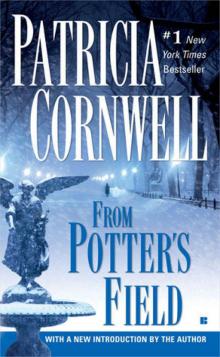 From Potter's Field
From Potter's Field Flesh and Blood
Flesh and Blood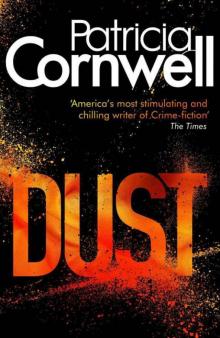 Dust
Dust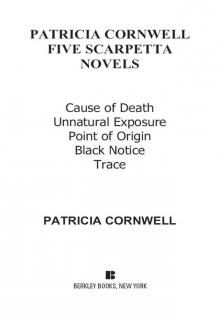 The Body Farm
The Body Farm Port Mortuary
Port Mortuary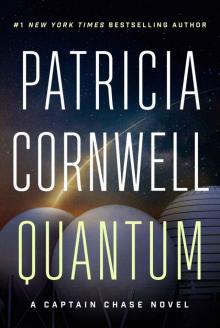 Quantum
Quantum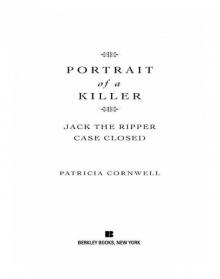 Portrait of a Killer: Jack the Ripper - Case Closed
Portrait of a Killer: Jack the Ripper - Case Closed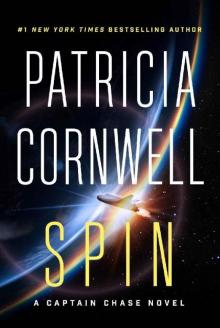 Spin (Captain Chase)
Spin (Captain Chase)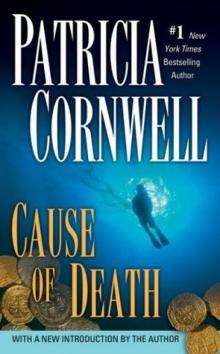 Cause of Death
Cause of Death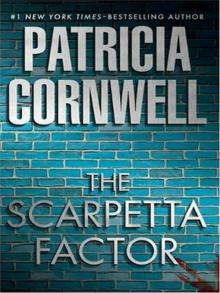 The Scarpetta Factor
The Scarpetta Factor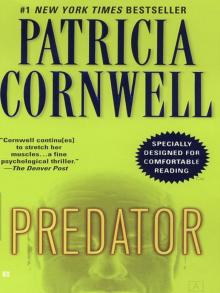 Predator
Predator Scarpetta 18 - Port Mortuary
Scarpetta 18 - Port Mortuary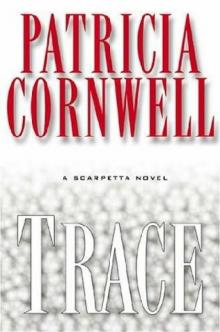 Trace ks-13
Trace ks-13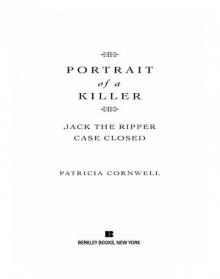 Portrait of a Killer
Portrait of a Killer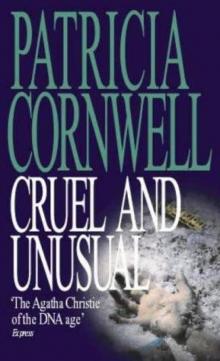 Cruel and Unusual ks-4
Cruel and Unusual ks-4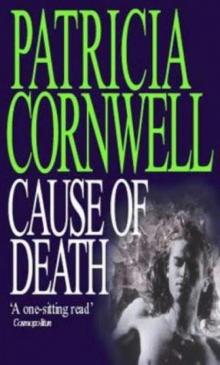 Cause Of Death ks-7
Cause Of Death ks-7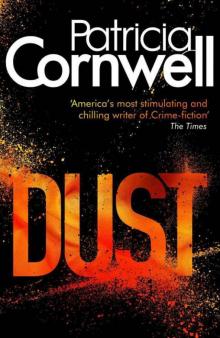 Dust ks-21
Dust ks-21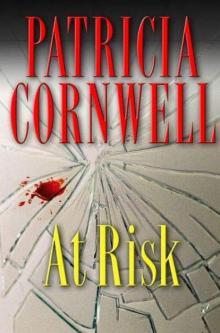 At Risk wg-1
At Risk wg-1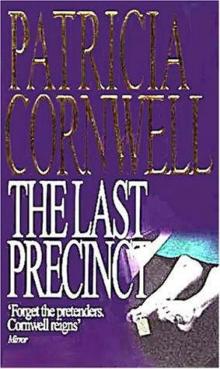 The Last Precinct ks-11
The Last Precinct ks-11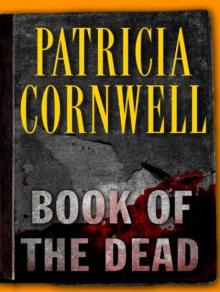 Book of the Dead ks-15
Book of the Dead ks-15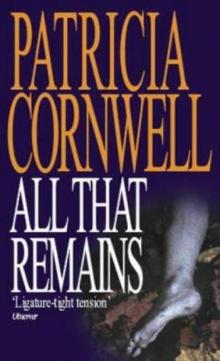 All That Remains ks-3
All That Remains ks-3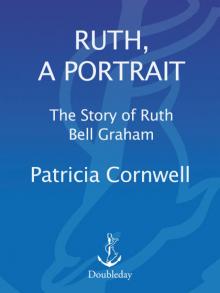 Ruth, a Portrait
Ruth, a Portrait Scarpetta's Winter Table (kay scarpetta)
Scarpetta's Winter Table (kay scarpetta)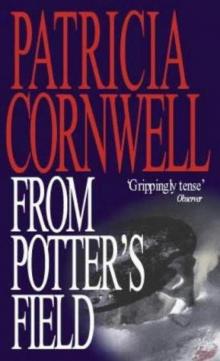 From Potter's Field ks-6
From Potter's Field ks-6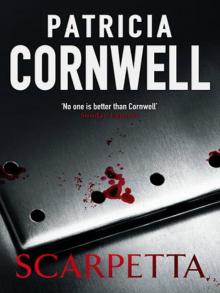 Scarpetta
Scarpetta Isle of Dogs jhabavw-3
Isle of Dogs jhabavw-3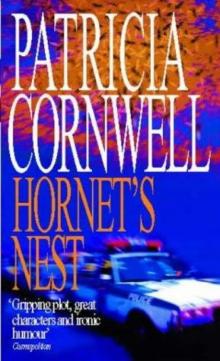 Hornet's Nest jhabavw-1
Hornet's Nest jhabavw-1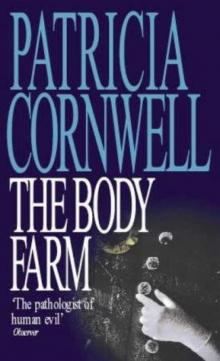 The Body Farm ks-5
The Body Farm ks-5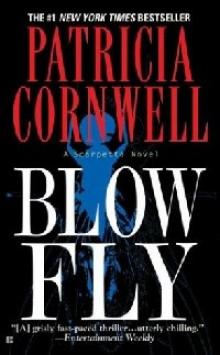 Blow Fly ks-12
Blow Fly ks-12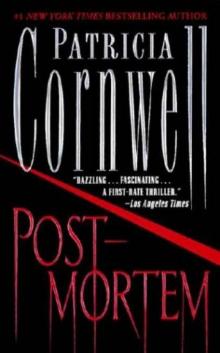 Post Mortem
Post Mortem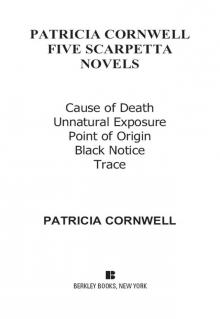 Five Scarpetta Novels
Five Scarpetta Novels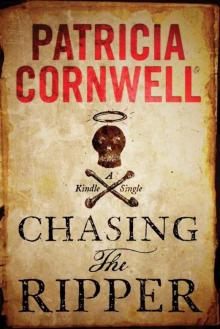 Chasing the Ripper (Kindle Single)
Chasing the Ripper (Kindle Single)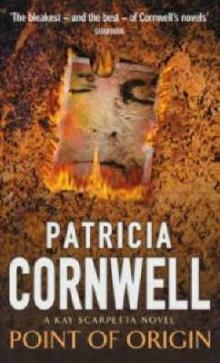 Point of Origin ks-9
Point of Origin ks-9 Port Mortuary (2010)
Port Mortuary (2010)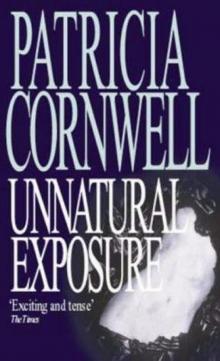 Unnatural Exposure ks-8
Unnatural Exposure ks-8 Southern Cross uhabavw-2
Southern Cross uhabavw-2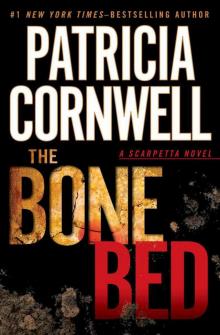 The Bone Bed ks-20
The Bone Bed ks-20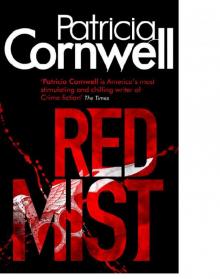 Red Mist ks-19
Red Mist ks-19 Port Mortuary (2010) ks-18
Port Mortuary (2010) ks-18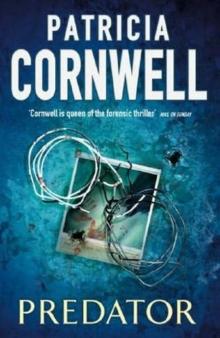 Predator ks-14
Predator ks-14